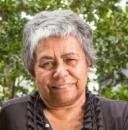'Lesley Williams was forced to leave the Cherbourg Aboriginal Settlement and her family at a young age to work as a domestic servant. Apart from pocket money, Lesley never saw her wages – they were kept ‘safe’ for her and for countless others just like her. She was taught not to question her life, until desperation made her start to wonder, where is all that money she earned? And so began a nine-year journey for answers.'
'Inspired by her mother’s quest, a teenage Tammy Williams entered a national writing competition with an essay about injustice. The winning prize took Tammy and Lesley to Michael Jackson’s Neverland Ranch and ultimately to the United Nations in Geneva. Along the way, they found courage they never thought they had and friendship in the most unexpected places.' (Source: On-line)
 6607241998077640281.jpg
6607241998077640281.jpg